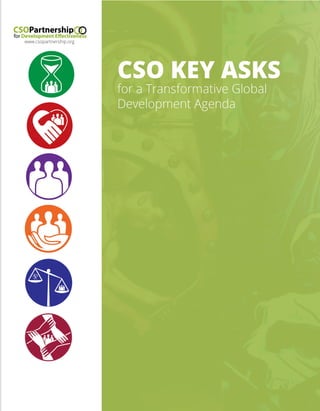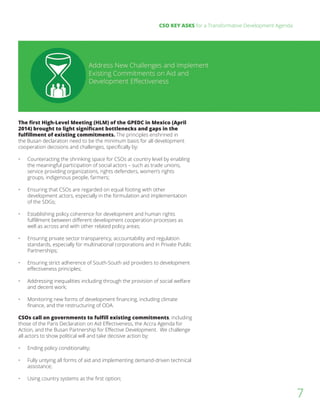The document outlines CSO Key Asks for a transformative development agenda. It begins by describing the CSO Partnership for Development Effectiveness (CPDE) and its role in developing demands to promote development effectiveness. The document then lists a series of Key Asks directed at development actors, governments, and other stakeholders. These Key Asks call for commitments to development effectiveness principles, an enabling environment for CSOs, human rights-based approaches, inclusive development, and addressing issues related to private sector involvement, south-south cooperation, and implementation of sustainable development goals.















